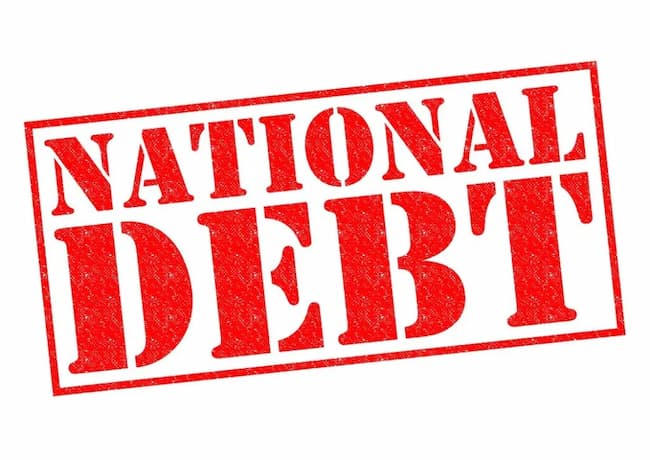Nigeria’s debt against its Gross Domestic Product (GDP) has been projected to rise to 35 percent, according to a report by a London-based research and analysis group, Economist Intelligence Unit (EIU).
Currently, the country’s debt to GDP ratio stands at 21.61 percent, according to a report by the Debt Management Office (DMO).
The DMO stated that the figure fell below the country’s 40 percent limit that was recently set by the Federal Government.
In the report by EIU, themed, “Country Report Nigeria”, it was stated that raising the public debt limit incorporate higher budget shortfalls over the medium term and to accommodate securitisation of the Central Bank of Nigeria’s deficit-financing as long-term debt. We expect public debt to reach only 35.4 percent of the GDP in 2025.”
The report estimated a 15 percent increase in the Value Added Tax (VAT) by 2025 and is expected to occur in three phases, with the first one estimated to take place in 2022 before the elections.
It said, “We expect three equal VAT rate increases, taking the rate to 15 percent by 2025. The first is expected in 2022, prior to the next elections but seemingly inevitable given a rising debt burden, with further rises in 2024 and 2025. Even then we expect fiscal revenue to peak at just five percent of the GDP in 2024, which also assumes no fuel subsidies beyond 2022.
READ ALSO: Ajaokuta Steel To Function Before End Of Buhari’s Govt. – Minister
“The federal government’s tax take is among the world’s lowest, undermined by widespread evasion and a large informal sector. The PIB is likely to be balanced between the interests of the treasury and investors, and so not deliver a considerable increase in revenue.
“Consequently, the VAT, currently at 7.5 percent, is likely to be used as a means of repairing the public finances.
“Overall, we expect the fiscal deficit to narrow to 3.3 percent of GDP in 2021 (from 3.7 percent of the GDP in 2020) as international oil prices rise.
“Also, the VAT rate increases and rising oil prices will push down the deficit to 2.6 percent of the GDP in 2023-24, but a decline in average global oil prices in 2025 will cause the shortfall to widen to 3.0 percent of the GDP in that year.”
On debt servicing, the report said that “high debt-servicing costs, a large public wage bill, and the purchase of COVID-19 vaccines will elevate expenditure. Capital investment will be emphasised to compensate for the disappearance of petrol subsidies once the PIB is enacted (which is expected in late 2021).
“The government will justify price deregulation by promising to invest the savings in infrastructure and will face pressure to match rhetoric with action.”
According to the DMO, the Federal Government had devised economic frameworks that would reduce debt servicing and shore up government revenue.
It said that the Strategic Revenue Growth Initiative and the Finance Act, 2020, would play a big role in supporting the country’s debt servicing and increased revenue.













